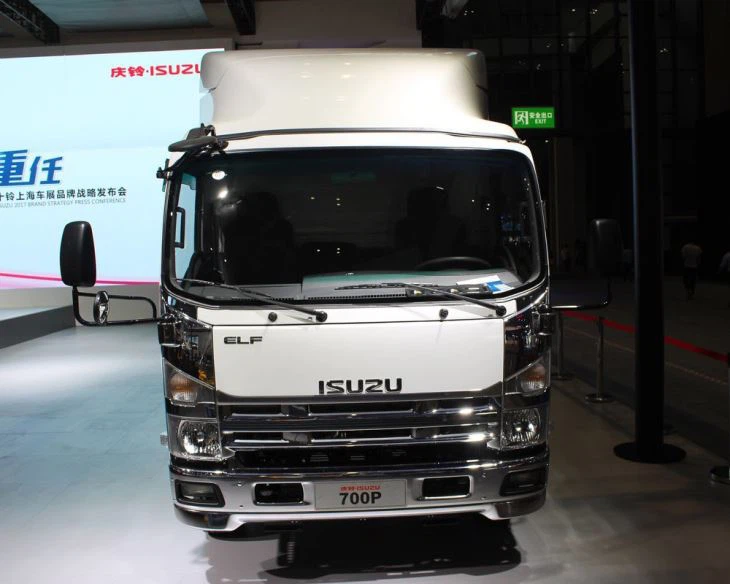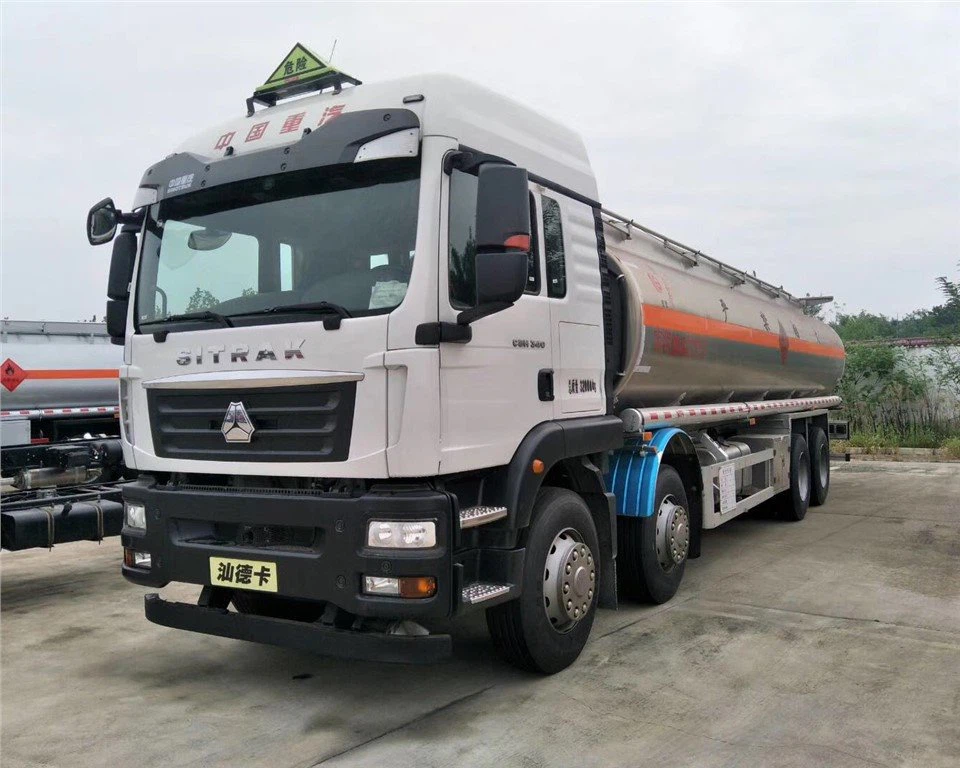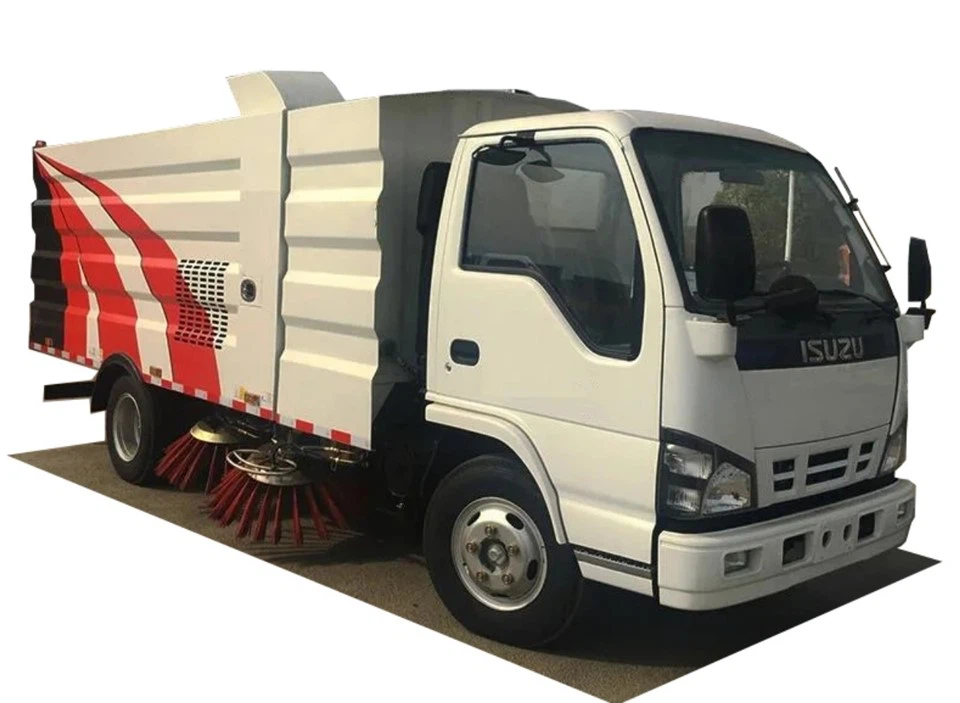Vacuum Trucks: A Comprehensive Guide to Their Uses and Importance

Introduction
Vacuum trucks play a critical role in various industries, offering efficient solutions for the removal of liquid waste, sludge, and other materials. This article aims to provide an in-depth understanding of vacuum trucks, their applications, benefits, and operational guidelines. As urban infrastructure grows and waste management becomes more complex, vacuum trucks continue to be indispensable tools for many businesses. Here, we will explore their mechanics, types, and best practices for operation, along with helpful tips for selecting the right vacuum truck for your needs.
What are Vacuum Trucks?
Vacuum trucks are specialized vehicles designed to suck up and transport a variety of substances, mainly liquid waste and sludge. These trucks utilize a vacuum system combined with a tank to collect and store materials for disposal or treatment. Understanding the components and functionality of vacuum trucks is crucial for appreciating their importance in waste management.
Basic Components of a Vacuum Truck
- Vacuum System: The core of the vacuum truck, this system creates suction to draw in materials.
- Storage Tank: A sealed container to store collected waste or liquids safely.
- Hoses and nozzles: Flexible components that convey the materials into the tank.
- Pump: Typically a positive displacement or centrifugal pump that aids in transferring materials.
- Control Panel: The interface for operators to manage the vacuum system and monitor the tank’s status.
Types of Vacuum Trucks
Vacuum trucks come in various designs tailored for specific applications. Here are some common types:
1. Liquid Waste Vacuum Trucks
These trucks are equipped to handle wastewater, sewage, and other liquid waste. Their design allows for the safe suction and storage of hazardous materials.
2. Dry Vacuum Trucks
Used for dry materials like sawdust, sand, or agricultural waste, dry vacuum trucks use pressurized air to convey materials into the tank.
3. Combination Vacuum Trucks
A versatile option, combination vacuum trucks can handle both wet and dry materials, making them suitable for a wide range of applications.
4. Industrial Vacuum Trucks
Specifically designed for industrial environments, these trucks can remove debris, slurry, and hazardous substances from various sites, including factories and construction zones.
Applications of Vacuum Trucks
Vacuum trucks serve crucial functions across diverse fields:
1. Wastewater Treatment
They play an essential role in collecting sewage and sludge from treatment plants and transporting it for processing.
2. Construction and Demolition
During construction projects, vacuum trucks help remove debris, excavated materials, and excess water from sites.
3. Oil and Gas Industry
In the oil and gas sector, these trucks are used to manage wastewater and hazardous materials, ensuring compliance with environmental regulations.
4. Environmental Cleanup
Vacuum trucks are vital in cleaning up spills and reducing environmental impact in contaminated sites.
5. Commercial Services
They are also used by commercial services for routine maintenance of septic systems and grease traps.
Benefits of Using Vacuum Trucks
The use of vacuum trucks comes with several advantages:
1. Efficiency
Vacuum trucks are designed for rapid collection and transport, significantly reducing the time needed to clear waste compared to manual methods.

2. Safety
By using vacuum trucks, workers can minimize exposure to hazardous materials, improving overall safety on the job site.
3. Environmental Compliance
Operators can ensure waste is collected and disposed of according to regulations, aiding in environmental protection efforts.
4. Versatility
With the ability to handle various materials, vacuum trucks can be adapted to different industries and waste types.
Operational Guidelines for Vacuum Truck Usage
To maximize the efficiency and safety of vacuum trucks, operators should adhere to specific guidelines:
1. Routine Maintenance
Regular maintenance of the vacuum system, tank, and engine is crucial for optimal performance. This includes checking for leaks and ensuring all components function correctly.
2. Safety Protocols
Always follow safety protocols when handling hazardous materials. Proper PPE (personal protective equipment) should be worn, and workers should be trained in emergency response.
3. Proper Loading Techniques
Operators should ensure the tank is not overfilled and materials are loaded evenly to prevent an imbalance during transit.
4. Monitoring Equipment
Using gauges and control panels, monitoring the weight, pressure, and level of materials in the tank is essential to avoid accidents.
Cost Considerations for Vacuum Trucks
Investing in a vacuum truck can involve substantial costs. Below is a breakdown of factors influencing expenses:
1. Purchase Price
The price of vacuum trucks can vary widely based on size, type, and customization options, typically ranging from $60,000 to over $200,000.
2. Operating Costs
This includes fuel, maintenance, repair, insurance, and other administrative costs associated with running the vehicle.
3. Labor Costs
Skilled workers are needed to operate vacuum trucks, thus adding to overall expenses if hiring trained personnel.
4. Regulatory Compliance Costs

Ensuring compliance with environmental regulations may incur additional costs related to permits, inspections, and waste disposal services.
Choosing the Right Vacuum Truck for Your Needs
When selecting a vacuum truck, consider the following factors:
1. Type of Waste
Identify what materials you will primarily be handling to determine the best vacuum truck type (liquid, dry, or combination).
2. Capacity Requirements
Choose a truck with a tank size appropriate for your operations to avoid frequent emptying.
3. Terrain and Environment
Assess the terrain where the truck will operate. Some trucks are better suited for rugged or urban environments.
4. Budget
Analyze the total cost of ownership, considering initial purchase price and ongoing operational expenses to stay within budget.
Maintenance of Vacuum Trucks
Proper maintenance of vacuum trucks ensures their longevity and efficiency. Here are some maintenance tips:
1. Daily Inspections
Daily checks on oil levels, hoses, and vacuum systems can prevent unexpected breakdowns.
2. Scheduled Servicing
Follow manufacturer guidelines for scheduled maintenance, focusing on major components like pumps and controls.
3. Cleaning the Tank
Regularly clean the tank after each job to avoid contamination and preserve the integrity of the truck.
4. Document Maintenance Activities
Keeping detailed records of all maintenance and repairs helps in tracking vehicle performance and planning future services.
Environmental Considerations
Vacuum trucks must adhere to environmental regulations to prevent pollution:
1. Waste Disposal Protocols
Ensure proper disposal methods are used for collected waste in compliance with local regulations.
2. Emission Standards
Regular checks and maintenance can help ensure trucks meet required emission standards, reducing their environmental impact.
3. Adequate Training
Operators should receive training in environmentally-friendly practices and compliance with relevant laws to ensure responsible waste management.
Frequently Asked Questions (FAQs)
1. What types of waste can vacuum trucks handle?

Vacuum trucks can handle a wide range of materials, including liquid waste, sludge, dry debris, sludge, and even hazardous substances.
2. How does a vacuum truck operate?
A vacuum truck operates by using a vacuum system that creates suction to draw materials into a storage tank, that can later be transported for disposal or treatment.
3. How often should vacuum trucks be serviced?
Routine maintenance should be conducted as per the manufacturer’s recommendations, usually on a regular schedule, and daily inspections should be performed to prevent issues.
4. Are there specific licenses required to operate a vacuum truck?
Yes, operators may need special licenses or certifications, especially when transporting hazardous wastes. Regulations vary by region, so it’s best to check local requirements.
5. Can vacuum trucks be used in different environments?
Yes, vacuum trucks are versatile and can operate in various environments, including urban, industrial, and construction sites, depending on their specifications.
6. How do I choose the right vacuum truck for my business?
Consider the type of waste you will be handling, required tank capacity, operating environment, and budget when selecting a vacuum truck.
